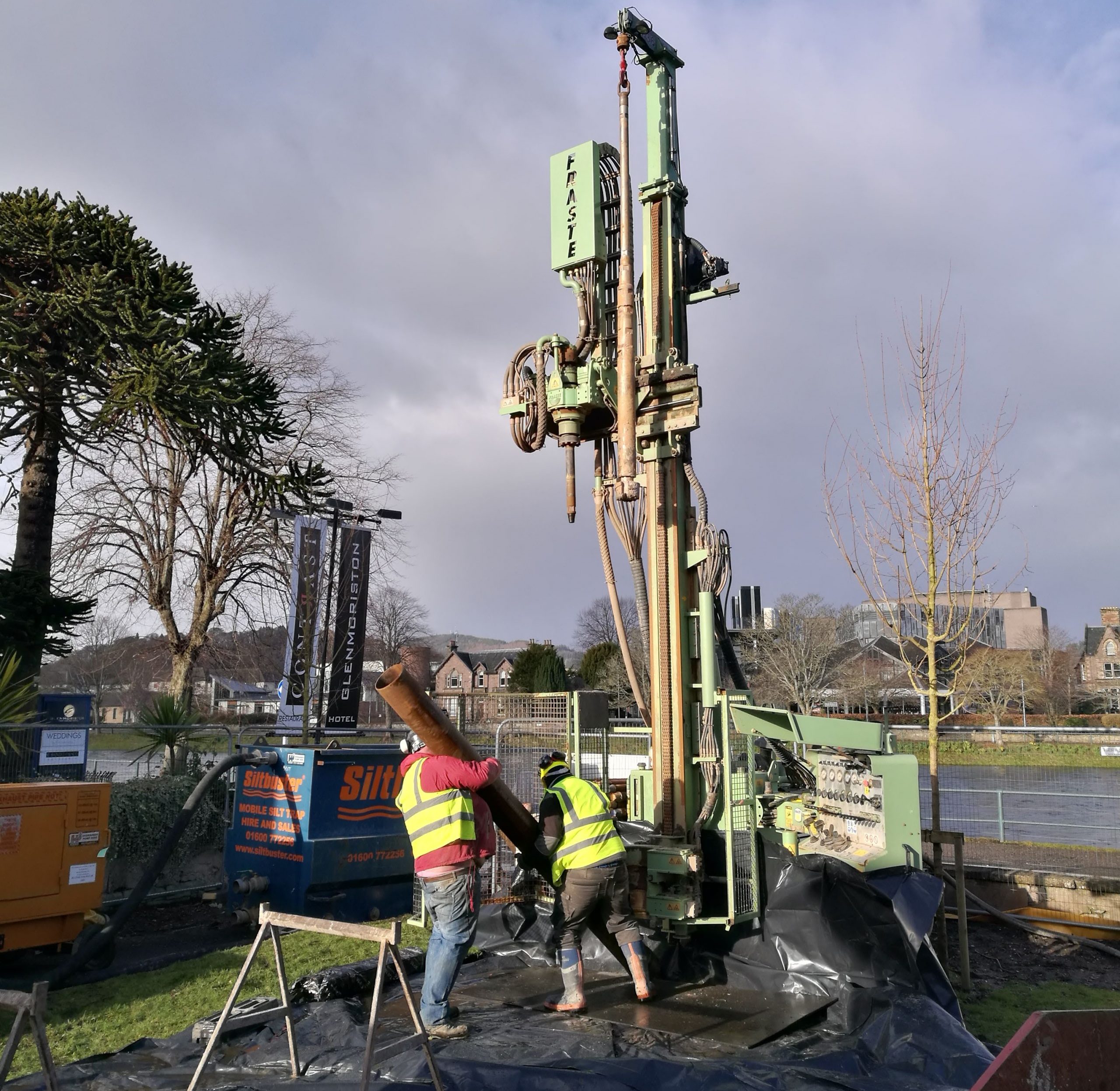
- July 03, 2020
Date: Feb 2020 – Apr 2020
Location: Inverness, Scotland
Client: Private Sector
Stage: Feasibility / Drilling
TRE recently designed and completed a test well for the Glen Mhor Hotel complex which is situated alongside the River Ness within the centre of Inverness. The hotel owner would like to develop a low carbon heating system that utilises the locally available energy resource contained within the river, by tapping into the water held in the saturated sands and gravels beneath the hotel. The goals of the system are to provide a resilient, long-term, low carbon heating system that will allow the decarbonisation of the existing heating plant as well as having capacity to provide heat to planned future developments on the site and to a future city-wide, low-carbon district heat network.
TRE took 8 weeks for the entire activity: to engage with the client and be introduced to the project; determine the optimal drilling and data collection plan; agree the plan and sign contracts with the client; commission and mobilise the drilling rig; organise the on-site crew, HSE, PPE and scientific equipment; drill and test the well making decisions on-site as new information was gained about the sub-surface; organise laboratory analysis of all hydrochemistry samples; and type up the comprehensive report. The drilling was carried out the week before the coronavirus lockdown, and the final sample collected hours before the lockdown measures were announced by Boris Johnson.
The test well was a success, proving that plentiful water can be abstracted from the sand and gravel deposits beneath the site. One of TRE’s strengths is to be able to assess alternative production / injection well options for techno-economic comparison so optimal systems can be installed. Collecting and analysing geological, hydrogeological, hydrochemical and thermal data, and using that to optimise the final system design is key to installing systems that will minimise risk to clients and perform far beyond their payback period.
